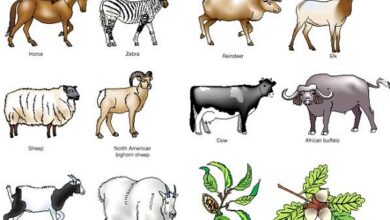What is Heteronomy vs Autonomy and anomie
Heteronomy
Heteronomy comes from Latin and Greek, and is the exact opposite of autonomy. That is, when he has no decision or opinion of his own.
The word heteronomia originates from Greek or Latin. In this way, we can understand its meaning only by the composition. For example, “straight” can translate to “different” and “nomia” translates to “rules”.
That is, they are rules created by means other than the “I”, they are often social rules, traditions or even religious influences. As a result, these individuals make decisions based on external influence, and not on their own. Therefore, creating conditions of obedience and conformation, believing that everything that is in effect is indisputably correct.
In this way, Jean Piaget, a Swiss psychologist scholar, determined an important fact to recognize heteronomy, rigidity. Basically, the individual in a condition of heteronomy cannot analyze the means, motives and intentions of the actions, but only if the order was fulfilled or not.
In Philosophy
Nowadays, when a person acts only to satisfy his own desires, ignoring the desires of others, he can be accused of “having autonomy”. This sense that autonomy means “being a responsible adult” is a misinterpretation of the original sense. Autonomy, from the Greek auto “own” and nomos “norm/rule”, means establishing one’s own moral rules. The term heteronomy is developed by Kant to oppose the concept of autonomy, and refers to “acting according to norms made by others”, such as following a system of national laws or following religious dogmas.Thus, acting to satisfy your own will can mean acting autonomously, and ignoring the will of others means acting without heteronomy.
It is possible to act with autonomy and heteronomy simultaneously. For example, if an individual pays fees to avoid a sanction, he is acting heteronomously, but if that individual believes that it is morally correct to pay fees for providing a service, he is acting autonomously. It is also possible to act without autonomy and without heteronomy, for example, by not paying for a particular service this individual would be against his own morality and against social morality.
In Law
In Law , heteronomy is the characteristic of the legal norm that establishes that it is imposed at the will of the recipient — that is, the law is imposed on the individual, and external to him, and can be created by an internal entity (such as the State ), an entity greater than the State (such as an economic bloc) or an international entity (such as the UN ).
Moral conscience evolves from heteronomy to autonomy, that is, people start by internalizing the norms and obeying them out of fear of punishment — heteronomy —, until this situation evolves to a level that consists of people’s self-determination based on rationally justified moral principles and values — autonomy . Heteronomy means that subjection to legal norms is not dependent on the free will of those who are subject to them, but, on the contrary, there is an external imposition that stems from their mandatory nature.
In Pedagogy
For Paulo Freire, the educational system imposes excessive heteronomy on its students, thus discouraging the development of initiative, creativity, emancipation and the construction of a “being for oneself”. According to him, without autonomy children become conformist adults, with little critical sense and vulnerable to oppressive social, political and economic systems. In his book Pedagogy of Autonomy he believes that the oppressed blame magical and mythical causes such as fate, fate, the will of God for their lack of freedom. Thus, autonomy would be seen as inaccessible, unattainable and unrealizable, leading to conformism and perpetuating the oppressive system.
In Paulo Freire’s view, in Latin America, heteronomy was violently imposed by the colonizers and the Catholic Church, resulting in a paternalistic , sectarian , alienated , irrational, uncritical culture, with emotional dependence on the oppressors. He argues that, instead of seeking autonomy, the oppressed eventually adhere to imposed values and start to admire the oppressor, imitate him and reproduce oppression.
Heteronomy Vs Autonomy
On the other hand, autonomy consists of the quality of life. These patients are limited in their ability to determine laws linked to their way of acting. In this way, the individual is not absent from external influences, but is able to analyze and judge the imposed rules.
Thus, the motivation and intention of an action is taken into account. Therefore, as in justice, if the attitude was contrary to a rule, but with a fair result, the situation is validated.
With this, we have a study of social classes stands out. This topic involves many aspects and can be understood from different angles; therefore, it is the subject who is motivated by his own laws, which may be different from the others, but which does not make them incompatible.
Anomie
In addition to heteronomy and autonomy, there is also the condition of anomie. Basically, anomie is configured in a state of absence of rules, in which the person ignores the social control imposed on that environment.
We can mention the anarchic societies, because they stopped following the moral and social rules, to become anomic.
In addition, we have examples cited by Jean Piaget. According to him, a child at birth does not yet have the mental capacity to distinguish social concepts. Therefore, the baby simply acts according to his needs. Then, with social influences, the child starts to act according to the approval of his parents and teachers , configuring a heteronomy. Finally, with their development and moral understanding, the person can reach autonomy, or continue in heteronomy.


